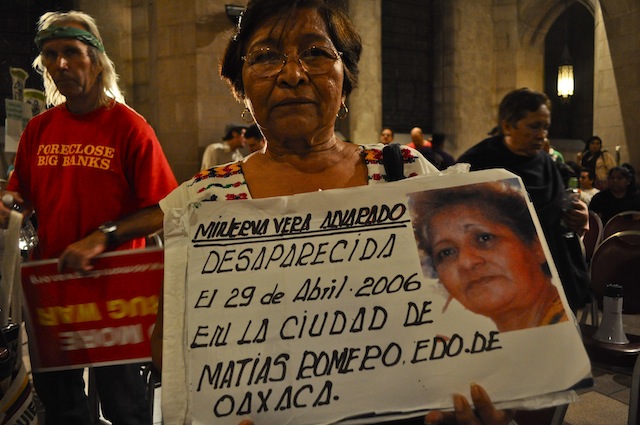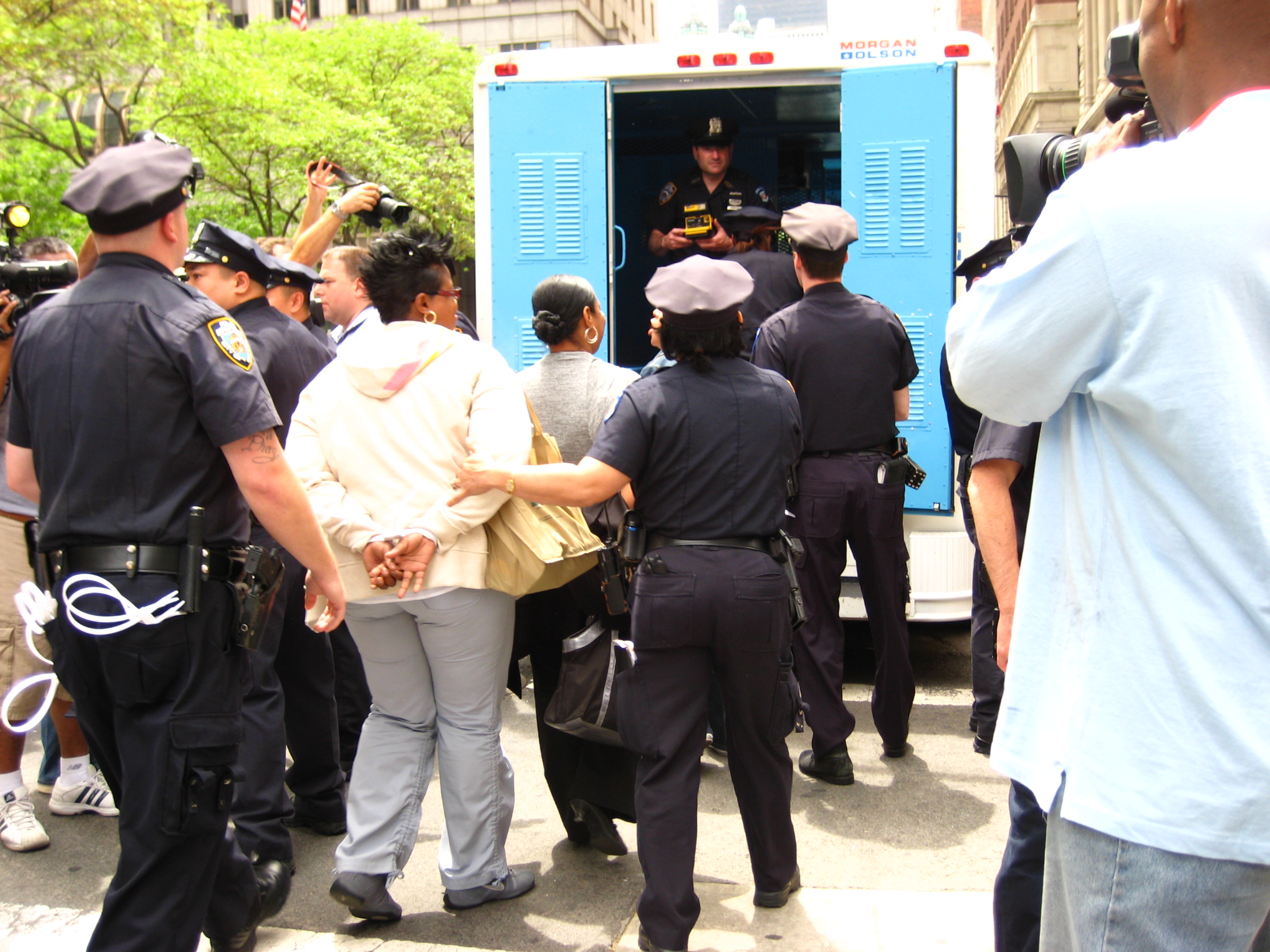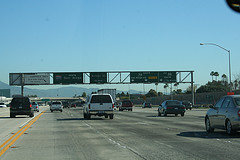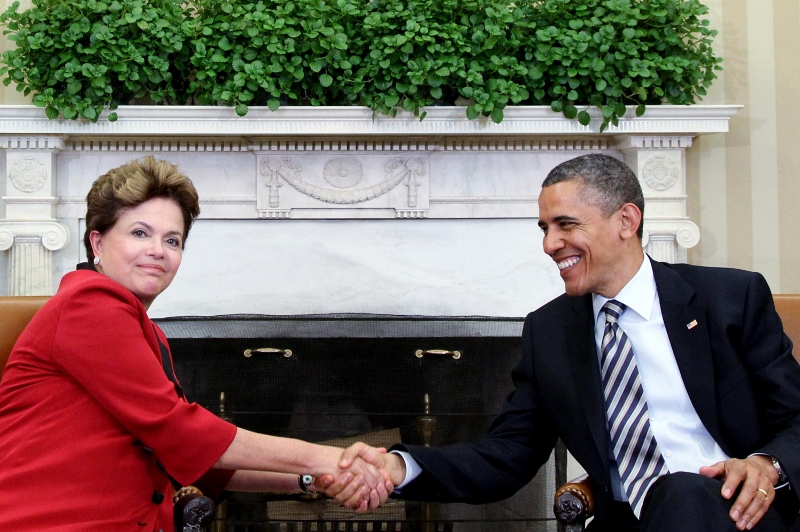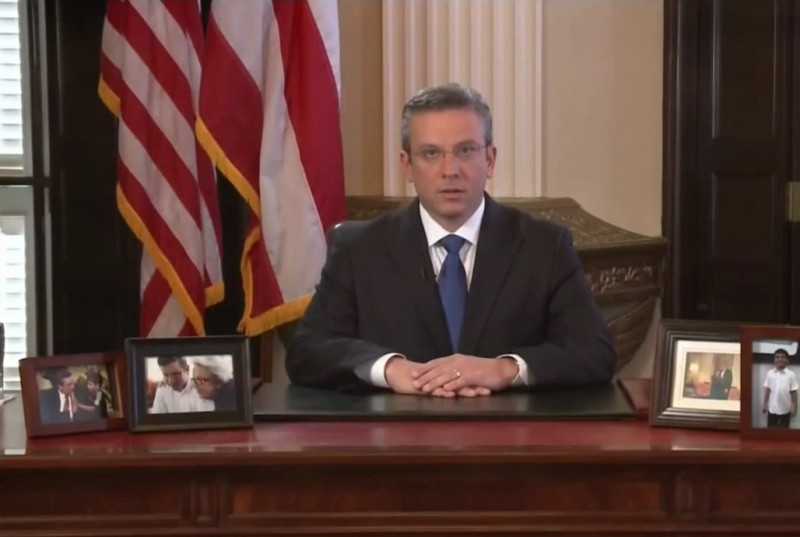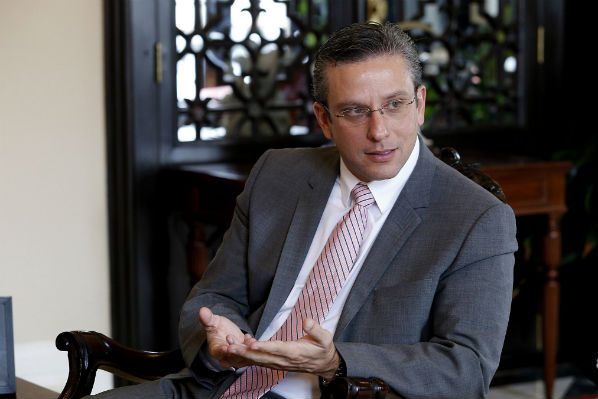
Caribbean, News Briefs, Puerto Rico, United States
In Declaring Puerto Rico’s Debt “Unpayable,” Governor Shifts Position on Debt Restructuring
June 30, 2015 By Dusty Christensen
In a televised speech delivered in a somber tone on Monday, Puerto Rican Gov. Alejandro García Padilla said that Puerto Rico’s $73 billion public debt is “unpayable,” confirming similar remarks made yesterday to The New York Times and laying out steps for the restructuring of the U.S. commonwealth’s debt obligations.
“The public debt, considering the current level of economic activity, is unpayable,” García said in the address. “In addition, the size of that debt prevents us from leaving the cycle of recession and economic contraction.”
The decision to seek debt restructuring is an about-face by García, who since being elected in 2012 has attempted to use austerity cuts and financial borrowing to stave off financial crisis. Several months ago, his administration was in talks to borrow some $2.9 billion to be paid for by a new fuel tax, but now has proposed a debt exchange, in which creditors holding Puerto Rican debt would swap their current bonds with new ones that would have terms more favorable to Puerto Rico.
García proposed a number of economic remedies on Monday, including reforms that he said will increase private investment in the economy, create jobs and bring in more revenue for the government. The governor also called for U.S. lawmakers to let the island file for Chapter 9 bankruptcy.
García’s speech followed a report issued Monday that his government commissioned from several former officials at the World Bank and International Monetary Fund, which calls for a restructuring of Puerto Rico’s debt on terms more favorable for the island. The report, which played a central role in the governor’s Monday speech, urges holders of Puerto Rican debt to consider taking losses on the commonwealth’s debt, as well as letting Puerto Rico extend payment deadlines and lowering payment rates.
The emotional tone of García’s speech reflected the devastating effects the commonwealth’s economic crisis has had on Puerto Rico’s population. Unemployment on the island is close to 14 percent, violent crime is on the rise and the government has been considering a significant cut to Medicare and Medicaid in 2016 as a result of economic concerns. Largely because of economic concerns, a net average of 48,000 people a year have migrated away from the island to the U.S. mainland each year from 2010 to 2013, as compared to an average of 12,000 people the previous two decades, according to the Pew Research Center.
This massive restructuring — Puerto Rico currently has the largest amount of municipal bond debt per capita in the entire United States — is likely to significantly increase borrowing rates on the U.S. municipal bond market, which is an important tool used by cities and states to raise funds for essential infrastructure needs.
The governor’s announcement will likely be met with opposition from the commonwealth’s creditors, including a number of hedge funds and mutual funds that bought the debt for low prices.
More than 35 hedge funds had bonded together to fund Puerto Rico’s Government Development Bank — one of the island’s many highly indebted public institutions — with the $2.9 billion oil-tax deal, but are now reportedly considering splitting apart and seeking litigation to protect their investments, according to Bloomberg Business.
A major tool for Puerto Rico to restructure its debt — Chapter 9 bankruptcy — is currently prohibited under U.S. law, but the island’s non-voting member of the U.S. House of Representatives has introduced a bill in Congress that would allow the commonwealth to file bankruptcy, and García has called on lawmakers to pass the legislation.
“It is time to demand concerted action of Washington,” García said during his speech. “Action to approve changes to Chapter 9 so that Puerto Rico has the same protection as other jurisdictions.”
The call for approving Chapter 9 comes less than two years after the U.S. city of Detroit declared bankruptcy in the face of some $20 billion in debt — the largest municipal bankruptcy filing in U.S. history to date.
A significant amount of lobbying money has entered Congress to influence the decision on granting Puerto Rico bankruptcy. Those lobbying on the bill are largely financial institutions with a stake in Puerto Rico’s solvency, but money has also come from the Puerto Rican government and groups like the conservative taxpayer advocacy organization the National Taxpayers Union, according to lobbying reports compiled by the Center for Responsive Politics. A large part of Puerto Rico’s debt is held by individual investors in different investment accounts, and many investors may not even realize they hold Puerto Rican debt, and so have a financial stake in its potential restructuring.
One of the most indebted public institutions, government-run electricity provider PREPA, has been at the center of attention because of its staggering $9 billion in total debt, $400 million of which is due in a payment on July 1.
In testimony before the House Subcommittee on Regulatory Reform, Commercial and Antitrust Law, Thomas Moers Mayer — representing two of PREPA’s creditors, Franklin Municipal Bond Group and OppenheimerFunds, Inc. — claimed that “Puerto Rico wants to use Chapter 9 to save a few cents per kilowatt hour, to let citizens in Puerto Rico pay less for power than citizens in Hawaii, or New York City, by forcing bondholders in the 50 states to shoulder the burden of PREPA’s operational failures and Puerto Rico’s fiscal irresponsibility.”
Beyond his calls to allow bankruptcy, the governor has laid out an economic development plan emphasizing the private sector as a driver of growth. The governor’s plan would entail social security reform, as well as several public-private partnerships and further spending cuts.
Tasked with initiating these measures and others will be the Working Group for the Economic Recovery of Puerto Rico, which García created by executive order on Monday.
In addition to concrete proposals, Monday’s speech was largely filled with calls for unity and mutual sacrifice during “extremely difficult” times, reflecting the gravity of Puerto Rico’s economic crisis and the decisions that lie ahead.
“The decisions we make today will define our country’s tomorrow,” García said, “and will force future governments to comply.”
About Dusty Christensen
Dusty Christensen is a writer based in New York City, and a producer of LAND's podcast, Radio Dispatch. His work has appeared at The Nation magazine, NPR's Latino USA, Eight by Eight magazine and Alternet, among other places. He speaks English, Spanish, Russian and Ukrainian with varying degrees of success, and is currently a Quechua-language FLAS Fellow at New York University.
